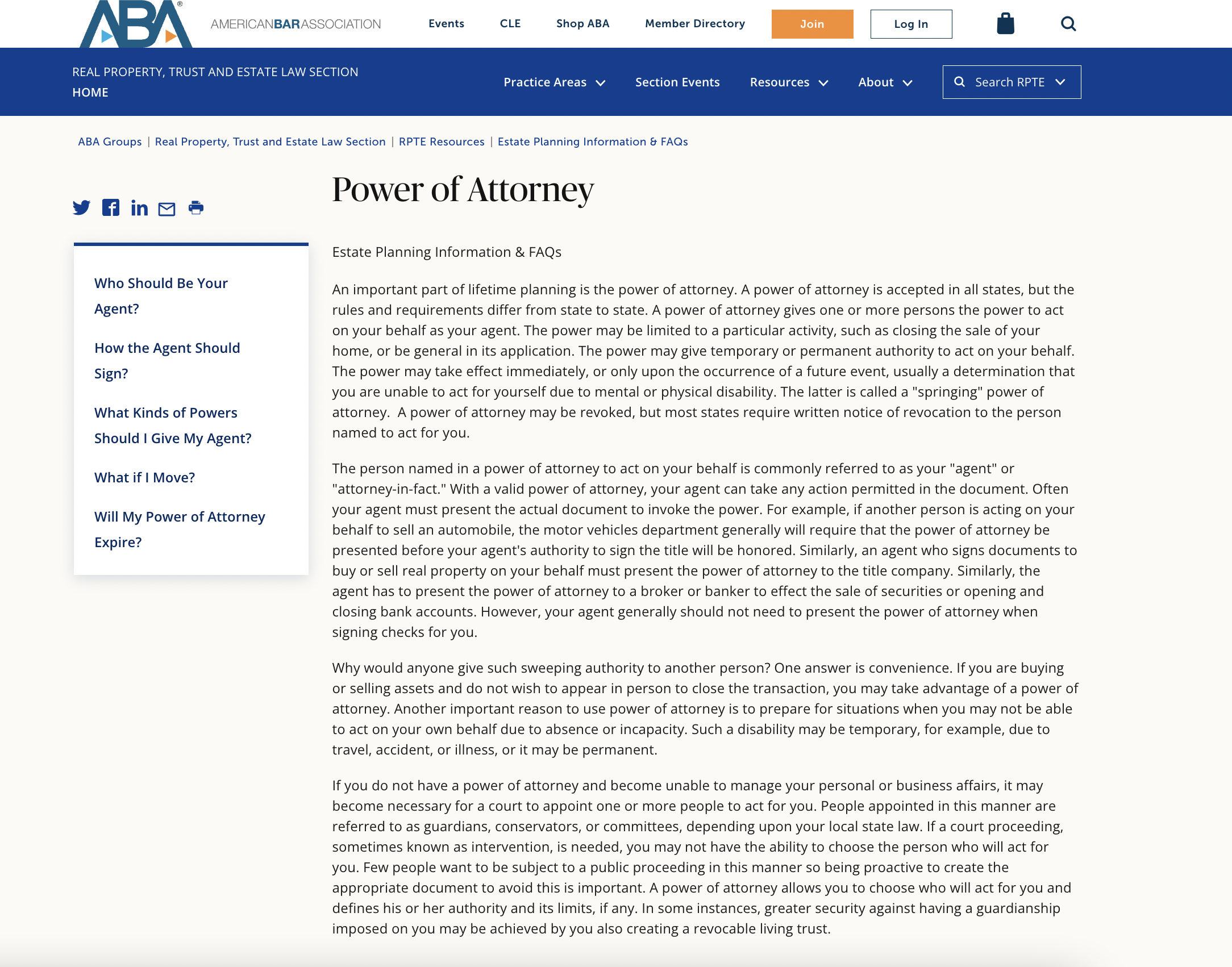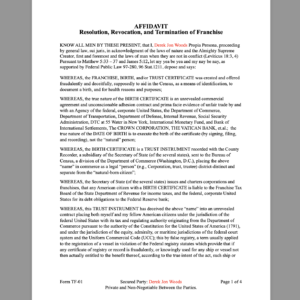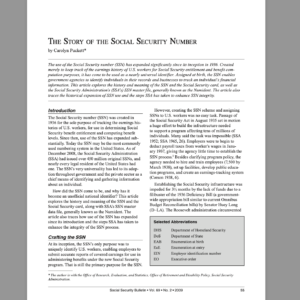Bouvier’s law Dictionary (1914), 3rd Revision, Volume 1, page 282:
A person to whom the authority of another, who is called the constituent , is by him lawfully delegated.
The term is employed to designate persons who are under special agency, or a special letter of attorney, so that they are appointed in factum, for the deed, or special act to be performed; but in a more extended sense it includes all other agents employed in any business, or to do any act or acts in pais for another. Bacon, Abr. Attorney; Story, Ag. § 25.
All persons who are capable of acting for themselves, and even those who are disqualified from acting in their own capacity, if they have sufficient understanding, as infants of proper age, and femes coverts, may act as attorney of other; Co. Litt. 52 a; 1 Esp. 142; 2 id. 511.
Black’s Law Dictionary 1st Edition, page 105:
ATTORNEY IN FACT. A private attorney authorized by another to act in his place and stead, either for some particular purpose, as to do a particular act, or for the transaction of business in general, not of a legal character. This authrity is conferred by an instrument in writing, called a “letter of attorney,” or more commonly a “power of attorney.” Bae. Abr. “Attorney;” Story, Ag. § 25.
Black’s Law Dictionary 2nd Edition, page 103:
ATTORNEY IN FACT. A private attorney authorized by another to act in his place and stead, either for some particular purpose, as to do a particular act, or for the transaction of business in general, not of a legal character. This authority is conferred by an instrument in writing, called a “letter of attorney,” or more commonly a “power of attorney.” Treat v. Tolman, 113 Fed. 893, 51 C. C. A 552; Hall v. Sawyer, 47 Barb. (N. Y.)119; White v. Furgeson, 29 Ind. App. 144, 64 N. E. 49
Black’s Law Dictionary 8th Edition, page 392:
attorney. 1. Strictly, one who is designated to transact business for another; a legal agent. — Also termed attorney-in-fact; private attorney. 2. A person who practices law; LAWYER. — Also termed (in sense 2) attor-ney-at-law; public attorney. Cf. COUNSEL. — Abbr. att’y. Pl. attorneys.[Cases: Attorney and Client 63. C.J.S. Attorney and Client §§ 165–166, 179–181, 234.]
American Bar Association (Link):
Power of Attorney
An important part of lifetime planning is the power of attorney. A power of attorney is accepted in all states, but the rules and requirements differ from state to state. A power of attorney gives one or more persons the power to act on your behalf as your agent. The power may be limited to a particular activity, such as closing the sale of your home, or be general in its application. The power may give temporary or permanent authority to act on your behalf. The power may take effect immediately, or only upon the occurrence of a future event, usually a determination that you are unable to act for yourself due to mental or physical disability. The latter is called a “springing” power of attorney. A power of attorney may be revoked, but most states require written notice of revocation to the person named to act for you.
The person named in a power of attorney to act on your behalf is commonly referred to as your “agent” or “attorney-in-fact.” With a valid power of attorney, your agent can take any action permitted in the document. Often your agent must present the actual document to invoke the power.













Recent Comments